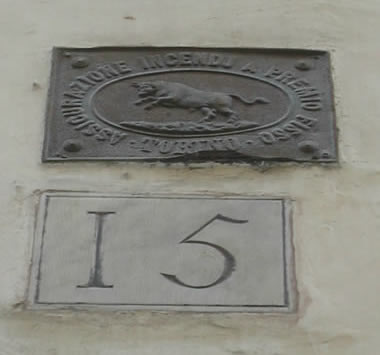A few people wrote to commiserate over my long commute from Lecco to Milan and back. Most of the time, I actually don’t mind it. In the mornings I’m able to get some thinking done, and can work on my new office laptop. The evening commute is a good time to decompress between the stresses of the office and those awaiting me at home.
I have an iPod now, Ross’ hand-me-down since she used her Easter money from her nonna to buy herself a bigger and fancier one – 15 GB of music wasn’t enough for her. Given the problems with the old iPod, I was very reluctant for her to buy a new one, but the new one so far is working fine, and even the old one works more reliably using the USB 2 cable that came with the new one.
I saw somewhere online that someone wrote a university paper bemoaning the notion that iPods cause people to use music only as a soundtrack to whatever else they’re doing, thus debasing the music: if you can’t pay full attention to it, you aren’t appreciating it properly.
That may be true for some people, but that’s not how I use the iPod. I don’t usually listen to music while doing intellectual tasks, as I find it too distracting, and I rarely have time to sit around and just listen to the stereo in the taverna (den), so about the only time I could listen to music was in the car (not an ideal environment, our noisy old Fiat). With the iPod, I can sit on the train and watch the scenery go by, and really listen for the first time in years.
Music purists also bemoan the low quality of the MP3 compression format, but it’s good enough that, with the iPod “earbuds” stuck right into my head, I’m hearing nuances that I never noticed in years of listening to these same songs.
The iPod is also useful for drowning out everyone else on the train. Italians talk endlessly, loudly, and not necessarily just to people they know. Sometimes I overhear amusing things, but sometimes it just gets on my nerves. And the loudest voices are often the most grating ones, and the least worth hearing…
Jul 5, 2005
Maybe I spoke too soon when I said that commuting into Milan daily isn’t so bad. It’s summer now, when commuting can be absolute hell.
The trains I take in the morning are usually air-conditioned – not even necessary at that time of day. However, for some unfathomable reason, no matter what train I take in the afternoon/evening, the A/C is intermittent at best, and a closed-up metal train car quickly becomes a sauna. Most of the time trains are moving, so the logical solution would be to open the windows. Ah, but then we have to contend with the dreaded colpo d’aria. Many Italians are convinced that sitting in a draft can be fatal. So when the train is finally rocking along and a nice breeze is blowing in, someone is bound to close the window. Next time this happens, I think I’ll tell them: “You are at far less risk of dying from the colpo d’aria than from me killing you right this minute.”
During one trip last week, I was moving along the train when I saw a woman sitting on one of the fold-down seats in the train’s entryway, with a thoroughly miserable-looking child. These areas are closed off from the train compartments by doors, so when the outer doors are shut, they become airless little boxes. And there she sat, sweating. As I opened the door to go through to the next compartment, someone called to the woman to come and sit with them. All the windows were open and the compartment was delightfully cool. “Oh, no,” she responded. “As long as those windows are open, I’m not coming in there. Michele [the little boy] will be sick tomorrow.” More likely Michele fainted ten minutes later from heat prostration.
- All about Italian Trains














